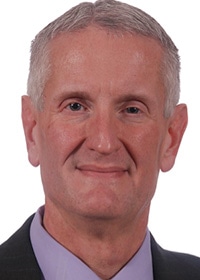
By: Artell Smith
Not long ago, I spent time with a group of managers who had all assumed new management roles. Some had been managers before, but for most, it was their first time. We talked about the basics: building relationships, driving performance and improving skills. I offered them some thoughts on how to think about these critical manager accountabilities. Happily, there are many resources managers can turn to for help.
The methods and models I have encountered and used over the years all have their charms. Yet, as my career has progressed, I became a solid fan of the manager interaction concepts found in two books written by Steve King, Six Conversations and Brag, Worry, Wonder, Bet. The techniques within these books give managers valuable insight into the central activities they are responsible for: Engage. Coach. Develop. Here’s what I mean:
Engage
Each employee desires a cordial and productive manager relationship. Each manager should want the same. It’s not rocket science, but it requires steady effort. The little things count in this endeavor, for example, upbeat conversations and 1:1 meetings that are not just task-focused. The big things count even more, like solid support from the manager when trouble arrives, plus a commitment by the manager to have the employee’s back.
Coach
Each employee wants to hear from their manager about what’s going well and what’s needing attention. A manager must discuss both. In Steve’s books, these are the Brag conversation and the Worry conversation. A manager should try to accentuate the positive when coaching an employee. Jack Zenger and Joe Folkman, in their book The Extraordinary Leader, pitched their tent on the idea that an employee goes further, faster when his/her strengths are amplified. This is a clue to the proportion of time a manager should spend on Brag vs. Worry.
Develop
Each employee needs a plan. A plan to move forward, acquiring new skills and abilities along the way. A manager owes their employees the answer to the query, “What and how should I develop?” This is the second question discussed in the Six Conversations. The employee is much more receptive to development when the manager is both engaging with and offering to coach to them.
Invest in your employees
Fulfilling regularly all three of these accountabilities – Engage. Coach. Develop. – shows to the employee that the manager is invested in helping the employee to prosper. A manager could do very well by their employees to keep this simple architecture in mind. Using the critical dialogs described in the Six Conversations and Brag, Worry, Wonder, Bet, will yield a comprehensive and robust employee/manager relationship. This relationship will stand the test of time.
Go further
We believe this deeply at the Center for Professional & Executive Development. Newer managers who are looking to develop their initial toolkit for managing people should check out Manager Boot Camp. Experienced managers who want to take their leadership capabilities to the next level will benefit from Leadership Beyond Management.
About the Instructor: Artell Smith

Artell has extensive experience in human resources management, advising and focusing on overall people strategy, talent management/development, and compensation/benefits. He has led transformative projects across all aspects of HR work globally, including talent development, generalist services, operations, technology, and global sourcing. Artell currently serves as vice president – talent at QuadQraphics and as principal and managing director of WatchWorks Management Consulting LLC.